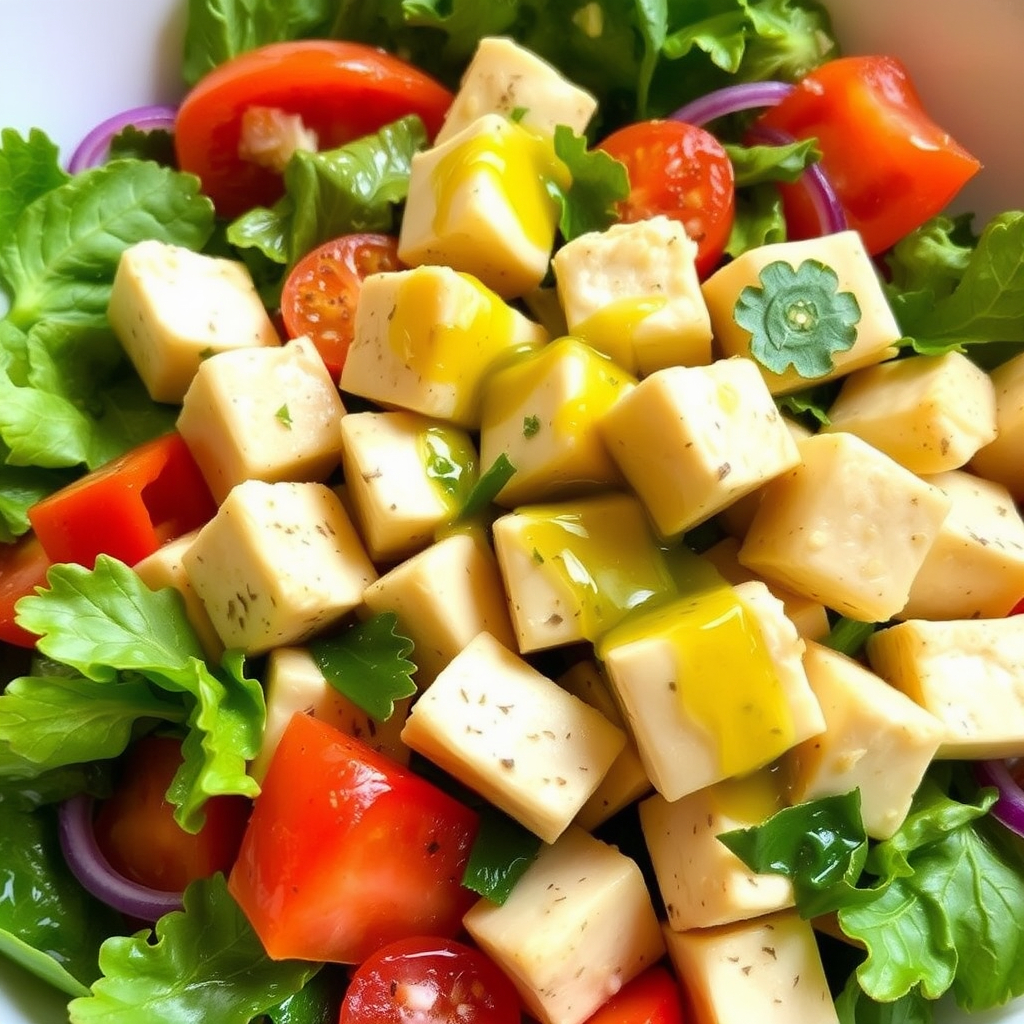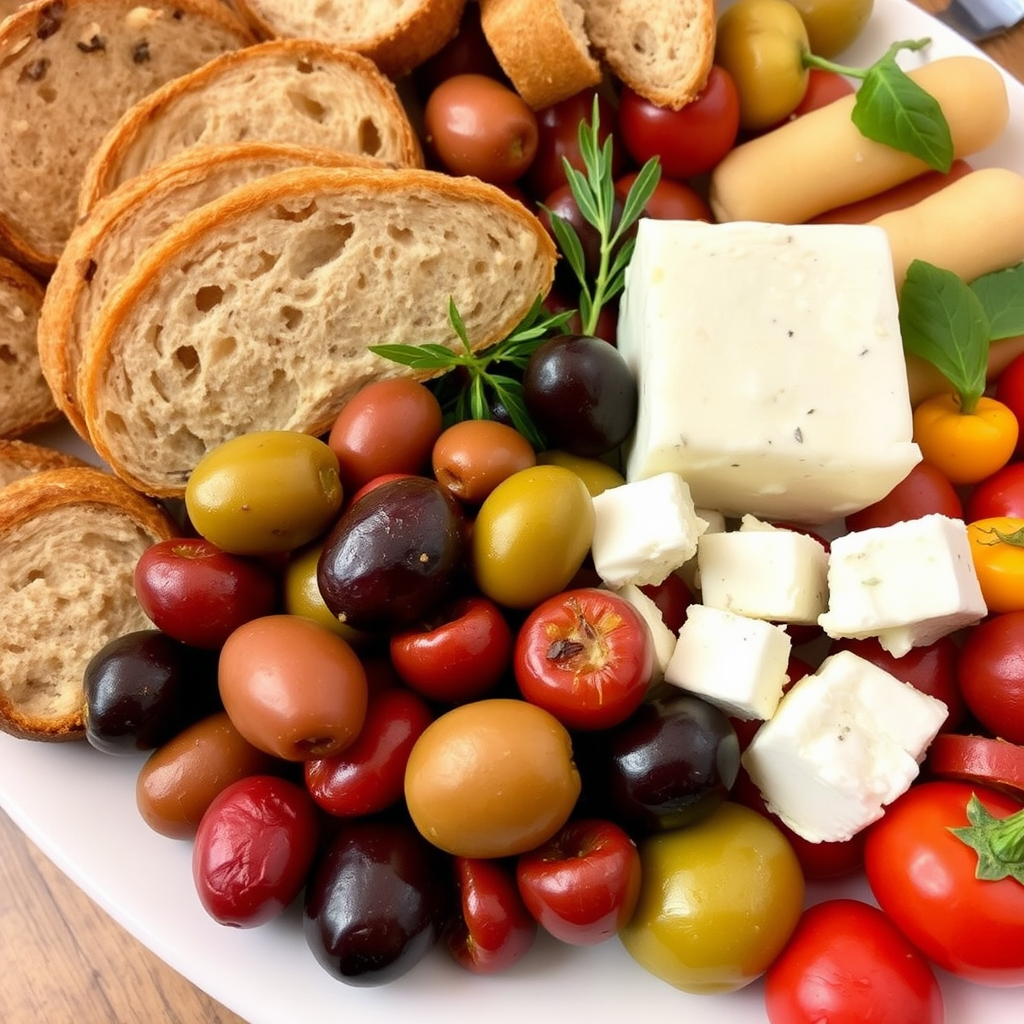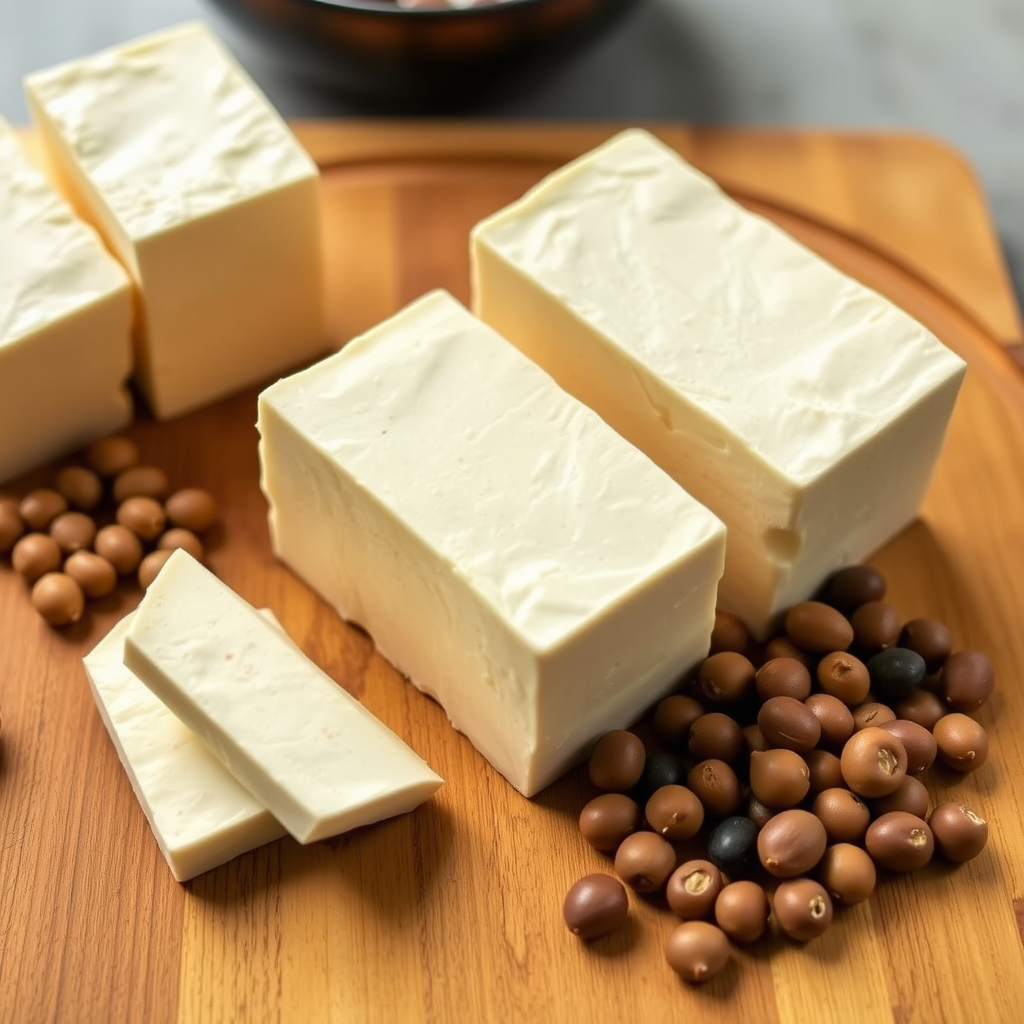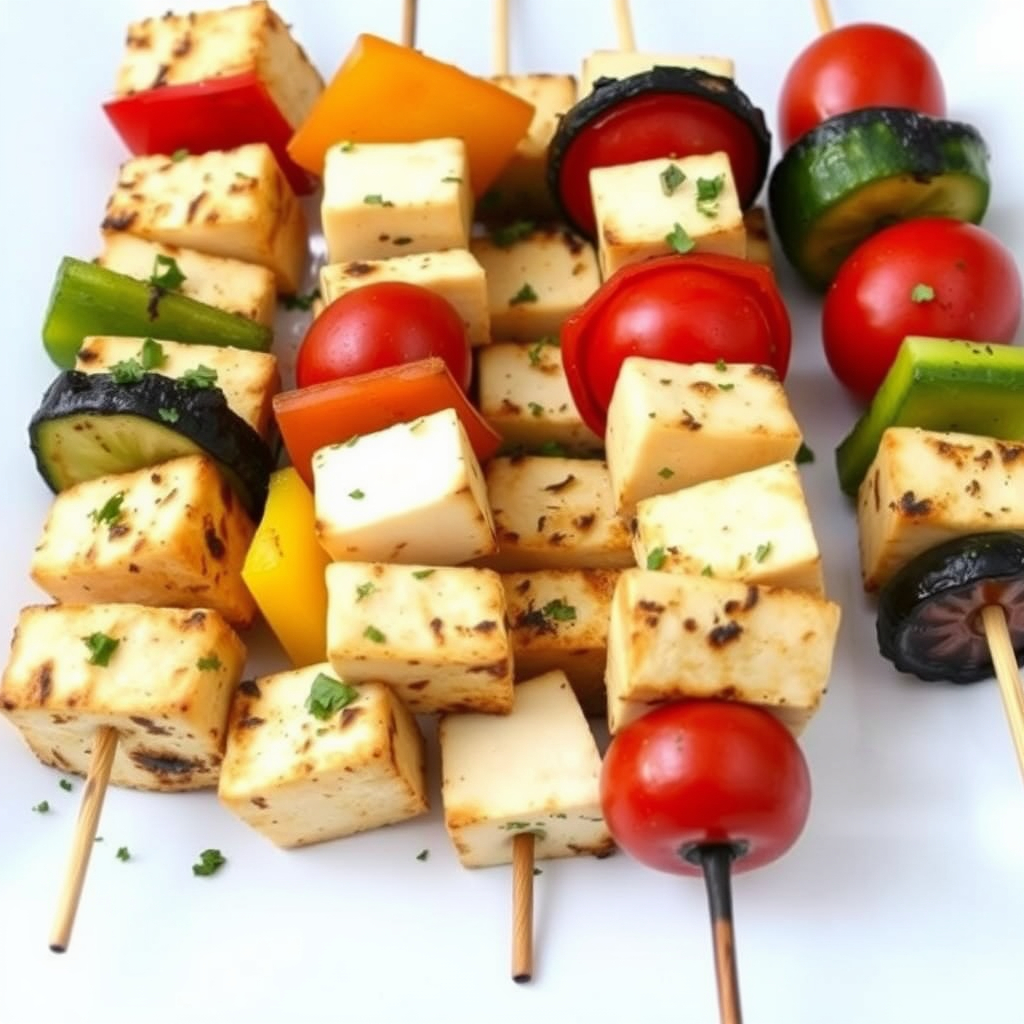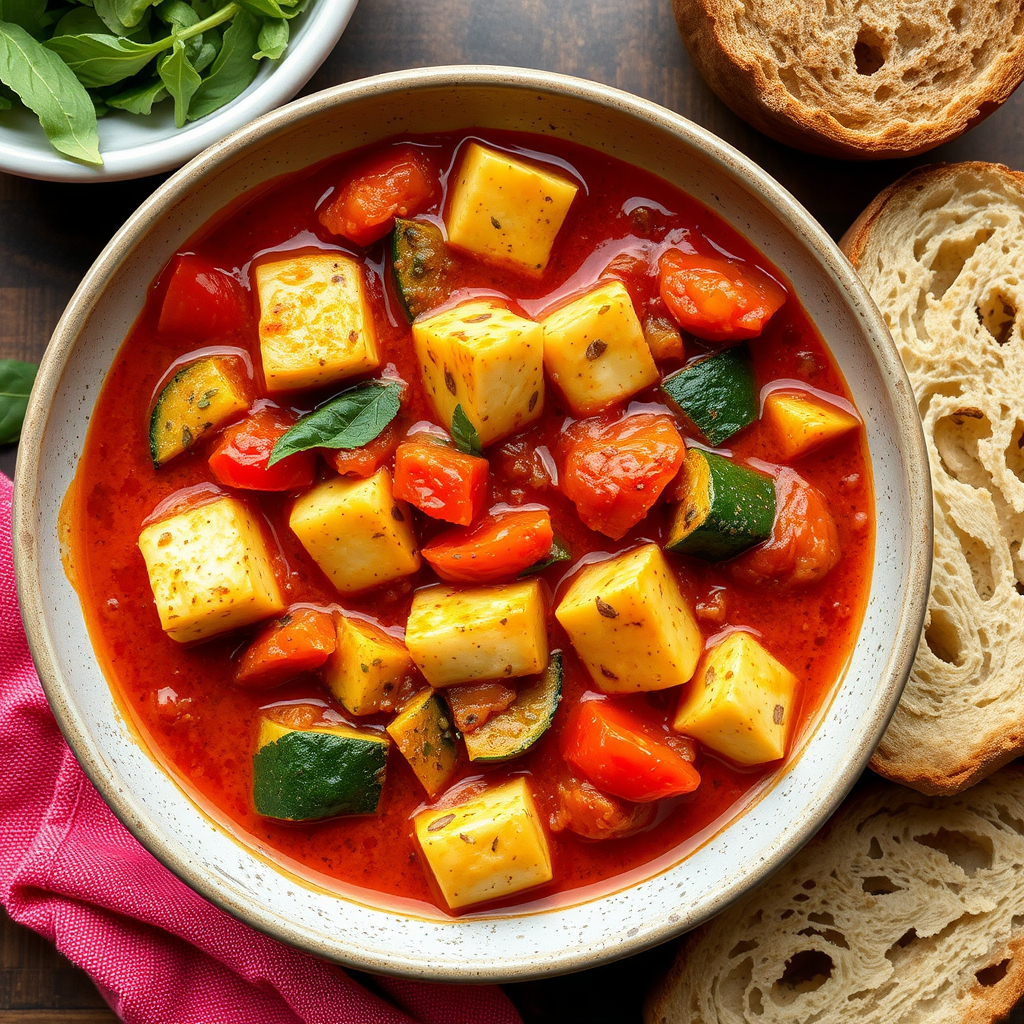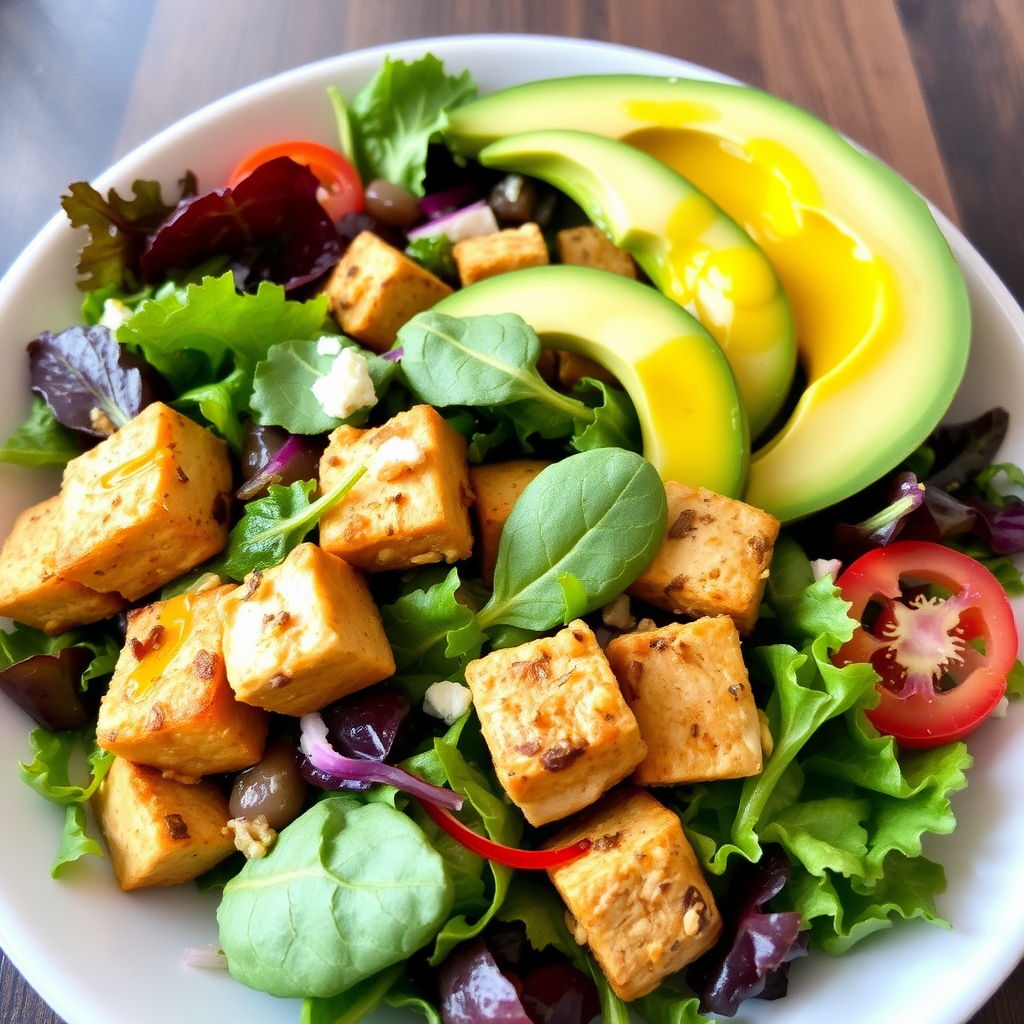Table of Contents
ToggleIs Tofu OK on Mediterranean Diet? Discover the Facts!
Introduction to the Mediterranean Diet
What Defines the Mediterranean Diet?
The Mediterranean diet reflects the eating habits of countries around the Mediterranean Sea, such as Greece, Italy, and Spain. This way of eating focuses on fresh, whole foods and emphasizes plant-based meals with moderate amounts of animal products. It is known for promoting heart health and overall well-being. Many people ask, Is tofu OK on the Mediterranean diet? While tofu is not a traditional ingredient, it aligns well with the principles of this diet, offering plant-based protein and versatility.
Here are some key aspects:
- Plant-Based Meals: Vegetables, fruits, legumes, nuts, and seeds are the foundation of most dishes.
- Healthy Fats: Olive oil takes center stage, replacing less healthy fats.
- Moderate Proteins: Seafood, poultry, and dairy make up a smaller but essential part of the diet.
- Natural Flavor: Herbs and spices provide seasoning, reducing the need for added salt.
This diet encourages a balance of nutrients while focusing on taste and variety.
Key Food Groups in the Mediterranean Diet
The Mediterranean diet includes several core food groups that work together to create healthy, delicious meals. For those wondering Is tofu OK on the Mediterranean diet? these food groups show how tofu can fit into its principles.
- Fruits and Vegetables
Fresh and seasonal fruits and vegetables appear in almost every meal. They provide vitamins, minerals, and fiber, which support overall health. - Whole Grains
Grains like barley, bulgur, and quinoa replace refined options. These grains are rich in fiber and offer a steady source of energy. - Nuts and Seeds
Almonds, walnuts, and sesame seeds add crunch and healthy fats. They also supply protein and antioxidants. - Olive Oil
Olive oil is a staple ingredient in cooking and dressings. It contributes to heart health thanks to its healthy monounsaturated fats. - Protein from Fish, Poultry, and Dairy
Fish and seafood are regulars in Mediterranean meals because they provide omega-3 fatty acids. Poultry and dairy products like yogurt and cheese appear in moderation. - Limited Red Meat and Sweets
Red meat is consumed sparingly, while desserts often include natural options like fresh fruit. - Herbs and Spices
Spices such as oregano, basil, and cinnamon replace salt, making dishes flavorful without adding sodium.
For those exploring new protein options, Is tofu OK on the Mediterranean diet? The answer is yes. It can serve as an excellent addition to this eating style, bringing diversity and balance to your meals.
Understanding Tofu as a Food Item
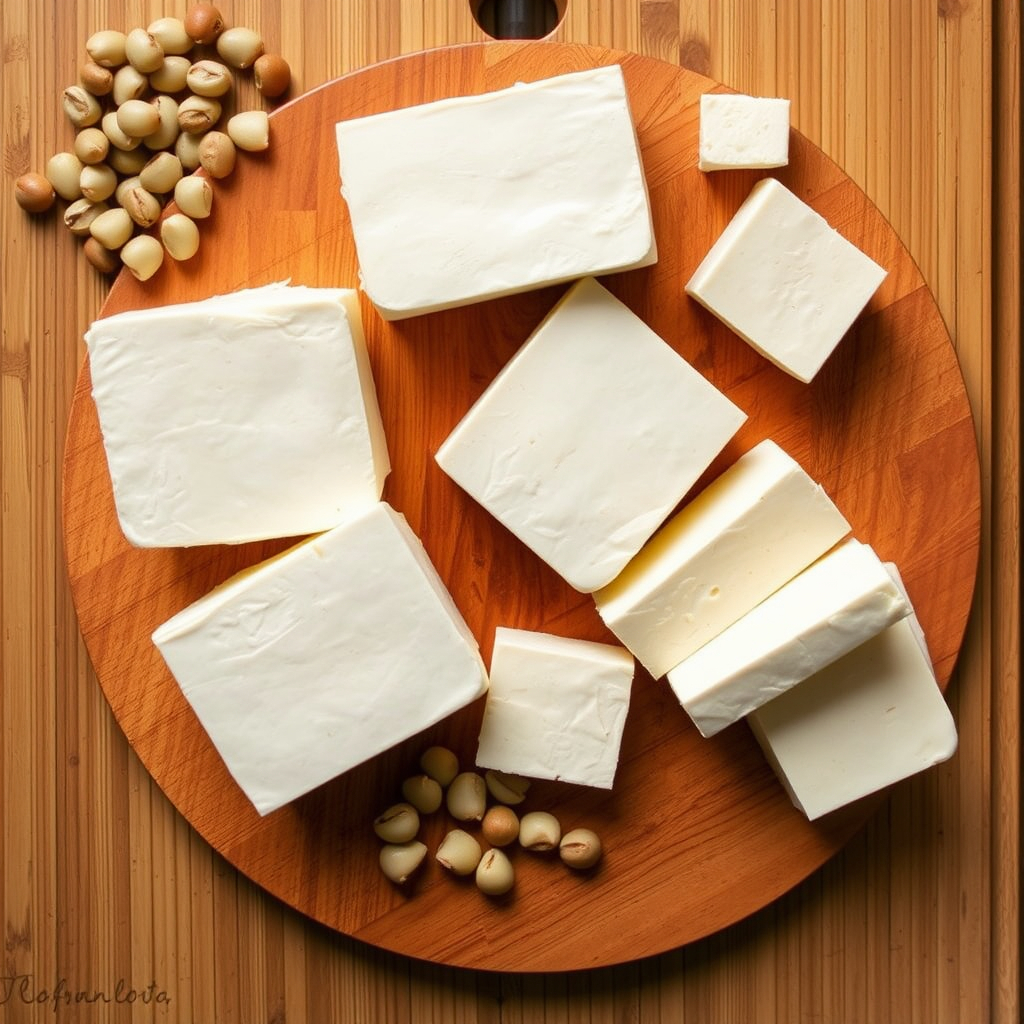
The Origins of Tofu
Tofu, also called bean curd, comes from China, where it was created over 2,000 years ago. People make tofu by curdling soy milk and pressing the curds into solid blocks. This simple process has made tofu a staple in many Asian diets. Its long history reflects its usefulness and adaptability in cooking.
Nutritional Profile of Tofu
Tofu packs a nutritional punch while remaining low in calories. It is an excellent choice for those seeking healthy, plant-based options. Here’s what makes tofu so beneficial:
- Protein-Rich: Tofu provides a great source of plant-based protein, which helps build and repair body tissues.
- Mineral Content: It supplies calcium, iron, and magnesium, which support strong bones, energy levels, and overall health.
- Isoflavones: These natural compounds in tofu may help promote heart health and balance hormones.
Its combination of nutrients and low calorie count makes tofu a smart addition to any meal plan.
Common Uses of Tofu in Cuisine
Tofu stands out as a versatile ingredient that can fit into a wide variety of dishes. Thanks to its mild taste, it easily takes on the flavors of marinades, spices, or sauces. People enjoy tofu in these common ways:
- Stir-Fries: Tofu brings protein and absorbs bold sauces in stir-fried dishes, creating a flavorful meal.
- Soups: Adding tofu to soups and stews enhances the dish with its soft texture and mild flavor.
- Salads: Grilled or baked tofu serves as a satisfying topping for fresh salads.
- Grilled Dishes: Cooks often grill tofu slices after seasoning them for a smoky, savory main dish.
Tofu fits seamlessly into countless recipes because of its adaptability. If you’re wondering, Is tofu OK on the Mediterranean diet? the answer is yes. Its plant-based nature and versatility align perfectly with the diet’s focus on fresh, healthy, and simple ingredients.
Tofu and Mediterranean Diet Compatibility
Plant-Based Proteins in the Mediterranean Diet
The Mediterranean diet strongly emphasizes plant-based proteins, making it a natural fit for incorporating tofu. Legumes like lentils and chickpeas, along with nuts and seeds, serve as primary protein sources in this dietary pattern. These foods provide essential nutrients while remaining minimally processed, which aligns with the diet’s focus on whole, nutrient-dense options. Adding tofu to this mix enhances protein diversity and supports the diet’s plant-centered approach.
Moreover, the Mediterranean diet encourages eating a variety of plant-based foods to maximize nutritional benefits. By including tofu, individuals can enjoy a high-protein, low-fat option that complements staples like grains, vegetables, and olive oil.
How Tofu Aligns with Mediterranean Principles
Tofu seamlessly aligns with the Mediterranean diet’s key principles. Its plant-based origin matches the diet’s focus on reducing animal protein consumption and prioritizing sustainable food choices. As a minimally processed product, tofu offers an excellent alternative to meats, particularly for those seeking variety in their meals.
Tofu’s versatility also makes it a valuable addition. It can replace traditional proteins in Mediterranean dishes without compromising taste or nutrition. For example, marinated tofu works well in vegetable skewers, while baked tofu pairs beautifully with a fresh tomato and olive salad. Its ability to absorb flavors ensures it fits seamlessly into Mediterranean recipes.
Addressing Concerns About Soy Products
Some people hesitate to include tofu due to concerns about soy. Common misconceptions, such as soy disrupting hormones, are not supported by most scientific evidence when soy is consumed in moderation. Studies have shown that isoflavones, the plant compounds found in soy, can offer health benefits without causing harm in typical dietary amounts.
For those worried about the processing or genetic modification of soy, many options for non-GMO, organic tofu are widely available. Choosing these products addresses concerns and aligns with the Mediterranean diet’s preference for minimally processed, high-quality foods.
By understanding tofu’s compatibility with Mediterranean principles, it’s clear that tofu is OK on the Mediterranean diet. It provides a sustainable, nutritious, and versatile option that complements the diet’s focus on health and balance.
Incorporating Tofu into Mediterranean Meals
Tofu as a Substitute for Traditional Proteins
Tofu serves as an excellent replacement for traditional proteins in Mediterranean dishes. Its versatility allows it to stand in for chicken, fish, or cheese in recipes such as salads, stews, and wraps. This substitution is particularly beneficial for vegetarians or anyone looking to reduce their consumption of meat and dairy without sacrificing protein or texture.
For example, cubed tofu can replace chicken in a hearty stew with tomatoes, zucchini, and herbs, while slices of tofu can mimic cheese in a fresh caprese salad. Its neutral flavor and ability to absorb marinades make it a seamless addition to Mediterranean-inspired meals.
Recipes Combining Tofu with Mediterranean Ingredients
Tofu’s adaptability makes it a fantastic ingredient in dishes that showcase Mediterranean flavors. Here are some recipe ideas to try:
- Tofu Caprese Salad: Layer marinated tofu slices with ripe tomatoes, fresh basil, and a drizzle of olive oil for a dairy-free twist on the classic dish.
- Herb-Baked Tofu: Season tofu with Mediterranean herbs such as oregano, thyme, and rosemary, then bake it with lemon juice for a flavorful and protein-rich main course.
- Tofu and Vegetable Kebabs: Skewer cubes of tofu with bell peppers, zucchini, and cherry tomatoes, then brush with olive oil and grill to perfection.
These recipes highlight how tofu can complement Mediterranean staples like olive oil, fresh vegetables, and aromatic herbs.
Tips for Balancing Flavors in Tofu Dishes
To make tofu dishes truly shine, it’s essential to focus on flavor. Since tofu is naturally mild, marinating it helps to infuse it with bold, Mediterranean-inspired tastes. Consider these tips for preparing tofu:
- Use Olive Oil and Garlic: Create a marinade with olive oil, minced garlic, and lemon juice to impart richness and depth.
- Incorporate Mediterranean Spices: Season tofu with paprika, cumin, or a mix of dried oregano and thyme for an authentic touch.
- Pair with Bold Ingredients: Combine tofu with strong flavors such as sun-dried tomatoes, capers, or olives to enhance its taste and add complexity to the dish.
For more creative vegan dishes, visit 25 Best Vegan Breakfast Recipe Ideas.
Health Benefits of Tofu on the Mediterranean Diet
Supporting Heart Health
One of the standout benefits of tofu is its ability to promote heart health, making it a great addition to the Mediterranean diet. Tofu is naturally low in saturated fat and entirely cholesterol-free, which helps reduce the risk of heart disease. Instead, it contains unsaturated fats and isoflavones—plant compounds that may support cardiovascular health by improving cholesterol levels and reducing inflammation.
Including tofu as a protein source can complement other heart-healthy Mediterranean staples like olive oil, nuts, and fish. For more information on the Mediterranean diet’s impact on heart health, check out this guide from the American Heart Association.
Managing Weight and Satiety
Tofu plays a helpful role in managing weight and promoting feelings of fullness. Its high protein content helps maintain muscle mass while keeping hunger at bay. Additionally, tofu’s fiber contributes to satiety, which reduces the temptation to overeat.
Since tofu is a low-calorie food, it fits well into calorie-conscious meal plans. For those following the Mediterranean diet to maintain or lose weight, tofu offers a satisfying and versatile protein option that aligns with dietary goals.
Enhancing Nutritional Variety
Adding tofu to Mediterranean meals enhances the variety of protein sources, which is crucial for a well-rounded diet. While the Mediterranean diet traditionally emphasizes legumes, nuts, and fish, tofu provides unique nutrients that diversify meal options. For instance:
- Isoflavones: Found in soy products like tofu, these compounds may offer hormonal balance and antioxidant benefits.
- Phytonutrients: These plant-based nutrients support overall health and add an additional layer of nourishment to meals.
By incorporating tofu, individuals can enrich their Mediterranean diet with new flavors and health benefits, keeping meals exciting and nutritious.
Tofu’s heart-healthy, low-calorie, and nutrient-rich profile shows that tofu is OK on the Mediterranean diet. It supports the diet’s core principles while providing unique advantages for overall well-being.
FAQs About Tofu and the Mediterranean Diet
Is soy consumption common in Mediterranean regions?
Soy is not traditionally part of Mediterranean cuisine, as the diet is rooted in the culinary habits of countries like Greece, Italy, and Spain. However, tofu aligns well with the Mediterranean diet’s principles due to its emphasis on plant-based, minimally processed, and nutrient-dense foods.
Are there Mediterranean-inspired tofu recipes?
Absolutely! There are many creative ways to incorporate tofu into Mediterranean-inspired dishes. For example:
- Tofu Hummus Bowls: Pair tofu with hummus, fresh vegetables, and a drizzle of olive oil for a wholesome meal.
- Grilled Tofu with Ratatouille: Add grilled tofu to a classic ratatouille of eggplant, zucchini, and tomatoes for a satisfying protein boost.
Does tofu have any adverse effects on health?
Tofu is safe for most people when consumed in moderation. While concerns about soy’s hormonal effects exist, current research shows that moderate tofu consumption does not cause harm in healthy individuals. However, people with specific conditions, such as soy allergies or thyroid issues, should consult a healthcare provider before including it in their diet.
Can tofu replace all animal-based proteins in the diet?
Tofu is an excellent alternative to animal-based proteins, but a varied intake of protein sources is recommended for balanced nutrition. Combining tofu with other plant-based proteins like lentils, chickpeas, and nuts ensures a wide range of essential nutrients.
How does tofu compare to other plant-based Mediterranean proteins?
Tofu offers several advantages over traditional plant-based proteins like lentils or chickpeas:
- Higher Protein Content: Tofu provides more protein per serving, making it ideal for those seeking high-protein options.
- Unique Texture: Its firm or silken texture adds variety to dishes and accommodates diverse cooking methods like grilling, baking, or stir-frying.
Is tofu an environmentally sustainable choice?
Tofu is considered an environmentally sustainable option, especially when compared to most animal proteins. Producing tofu requires fewer resources such as water and land and generates lower greenhouse gas emissions. Opting for non-GMO and organic tofu further supports responsible sourcing practices.
Conclusion
Tofu is a versatile and nutritious food that fits well within the Mediterranean diet. Its high protein content and adaptability make it a valuable addition, aligning with the diet’s emphasis on health and sustainability. While tofu may not be a traditional Mediterranean ingredient, it offers a modern twist that complements the diet’s principles of balance, flavor, and plant-based eating. By exploring Mediterranean-inspired tofu dishes, individuals can enjoy a diverse and satisfying approach to healthy living.
